

Sojitz innovations make way for quality food products in Vietnam
- From ensuring the delivery of delicious Japanese chocolates to developing original instant noodles for Vietnamese farmers
SCROLL
Vietnam is still home to many traditional markets and food stalls. Ho Chi Minh City, Hanoi, and other Vietnamese cities are characterized by their historic neighborhoods. At the same time, large-scale redevelopment projects are currently underway in these cities, including new construction of glass-paneled towers and further development of transportation infrastructure. Projects to support the modernization of Vietnamese cities and industries are supported by a number of Japanese companies, including our general trading company Sojitz.
Sojitz’s food retail business in Vietnam first began through a partnership with a major Vietnamese food wholesaler, and we now contribute to the diversification of Vietnam’s food culture through a range of functions, including expansion of Japanese Ministop convenience stores in Vietnam.
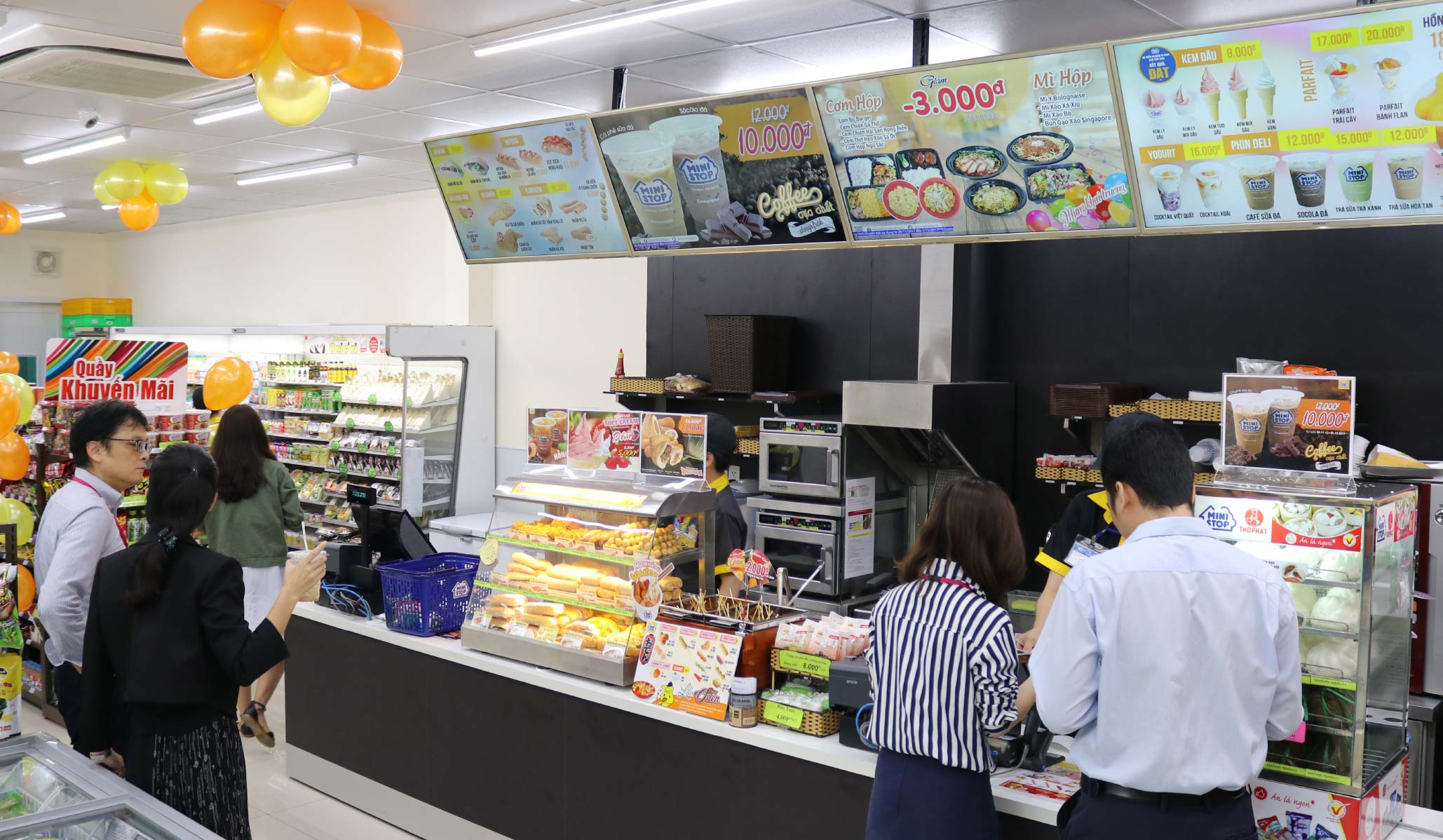

Japan’s Ministop evolves a unique Vietnamese flavor
Read More
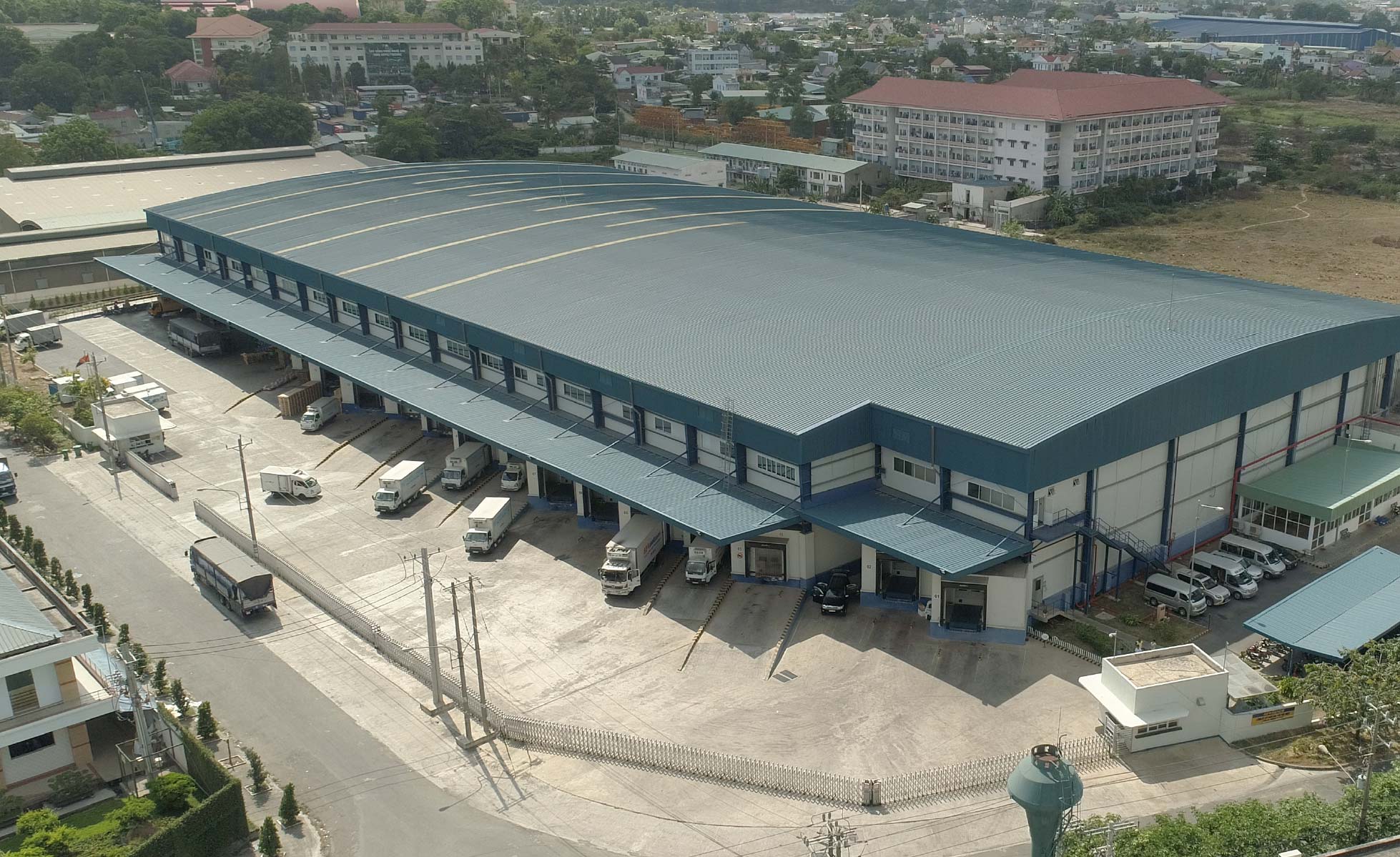

Changes to Vietnam’s food industry
New methods for delivering delicious food
Read More
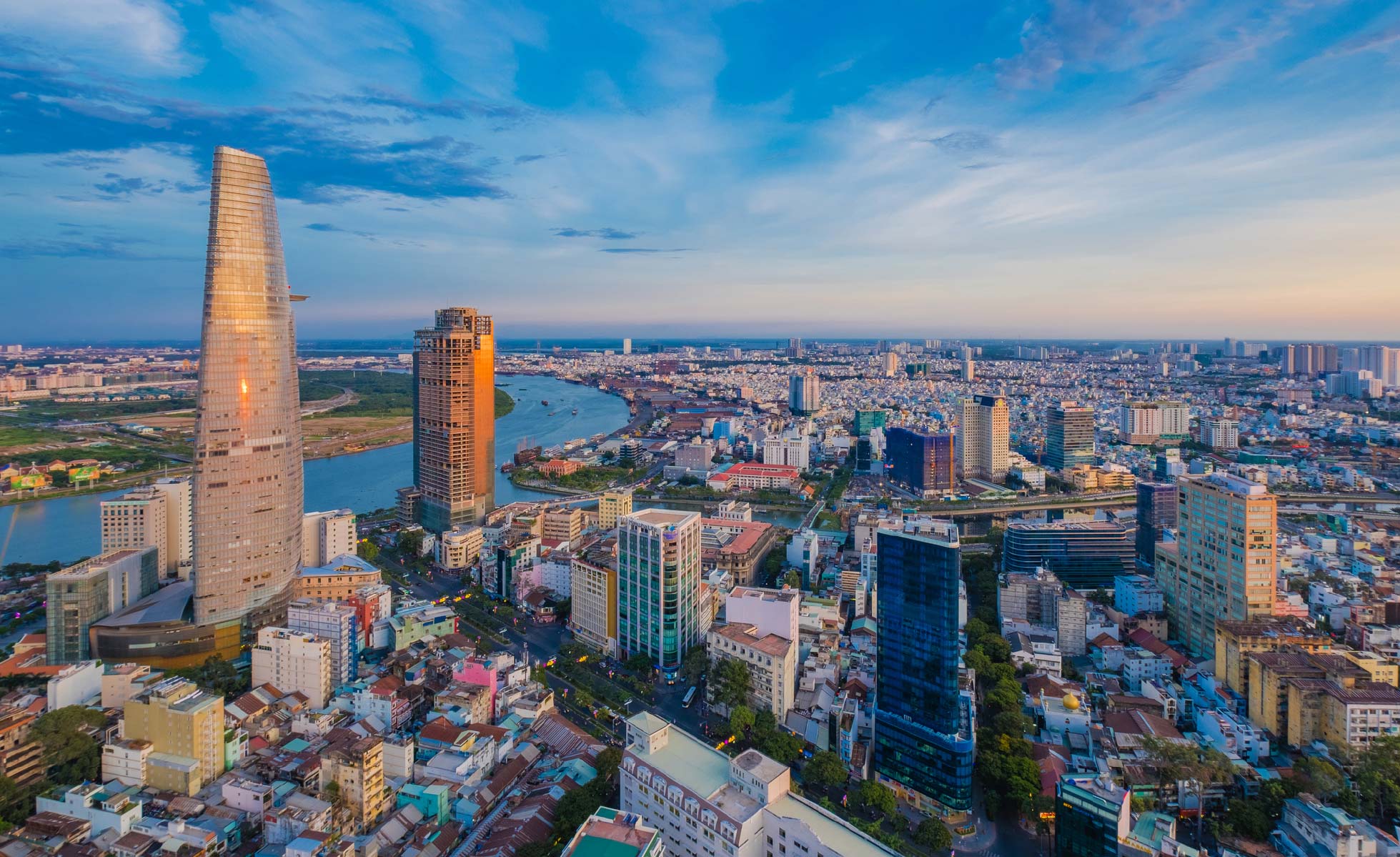

Sojitz’s quality-enhancing innovations permeate Vietnam’s food industry
Read More


Did you know Ministop has convenience stores in Vietnam? Look no further than social media to see Ministop’s overwhelming popularity in the country. Ministop Vietnam’s official Facebook page has nearly 200,000 likes and over 200,000 followers. What’s the secret to Ministop’s success? While all convenience stores boast a rich assortment of products, Ministop’s original products for the Vietnamese market truly set it apart.
Ministop has developed an original menu with familiar Japanese convenience store foods like onigiri, sushi, and hot snacks that are taste tested by Vietnamese staff to ensure products are localized to meet local taste preferences. In Vietnam, Ministop’s customer base is primarily Vietnamese. In addition to putting its own variations on Vietnamese dishes, Ministop has introduced Japanese food culture to Vietnam through a localized menu, which has helped Ministop stores to gain widespread popularity. One of Ministop’s unique products is its soft-serve ice cream, which is also a staple in Japan. Recently, Vietnam’s Ministop stores have begun sales of Hokkaido milk vanilla soft serve along with matcha-flavored soft serve made with green tea sourced from Shizuoka Prefecture.
After Sojitz began managing Ministop convenience stores in Vietnam, it introduced Japanese-style services such as on-site utility bill payment to increase convenience for Vietnamese residents in their daily lives. Ministop stores have expanded beyond downtown shopping districts with new locations in residential condominiums and near schools.
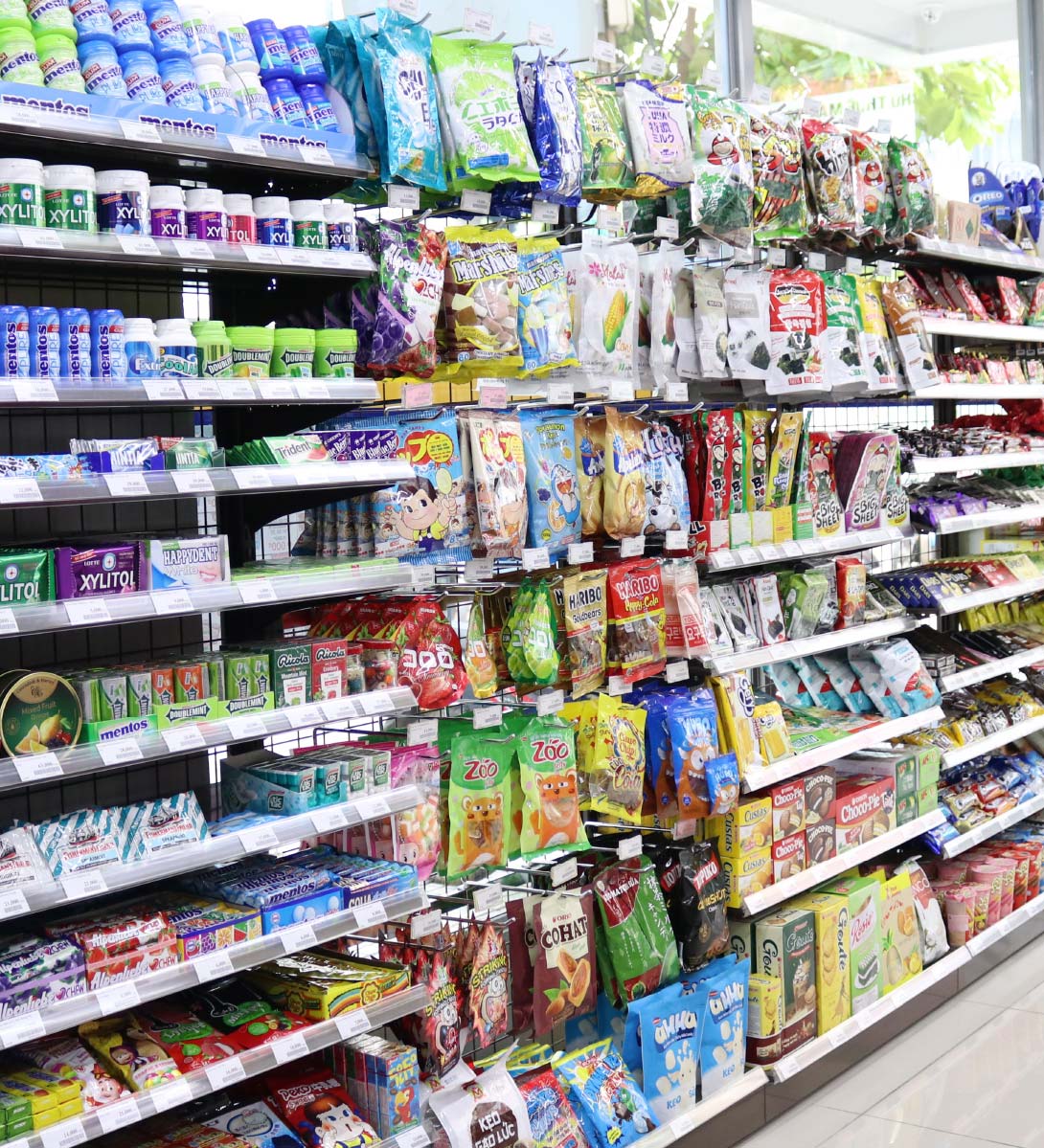
In July 2021, Vietnam faced a surge in Covid-19 infections. Ho Chi Minh City, the economic center of Vietnam, was forced into its second lockdown during this fourth wave of the virus. In certain parts of Ho Chi Minh City, not only were restaurants forced to close, but food delivery services were also suspended. Dining options were extremely limited for local residents during this time. The lockdown restricted activities, and restaurant closures meant that people could not freely dine out or go shopping. As residents spent an increasing amount of time at home, supermarkets and convenience stores like Ministop became a supportive infrastructure that residents came to rely on in their daily lives.
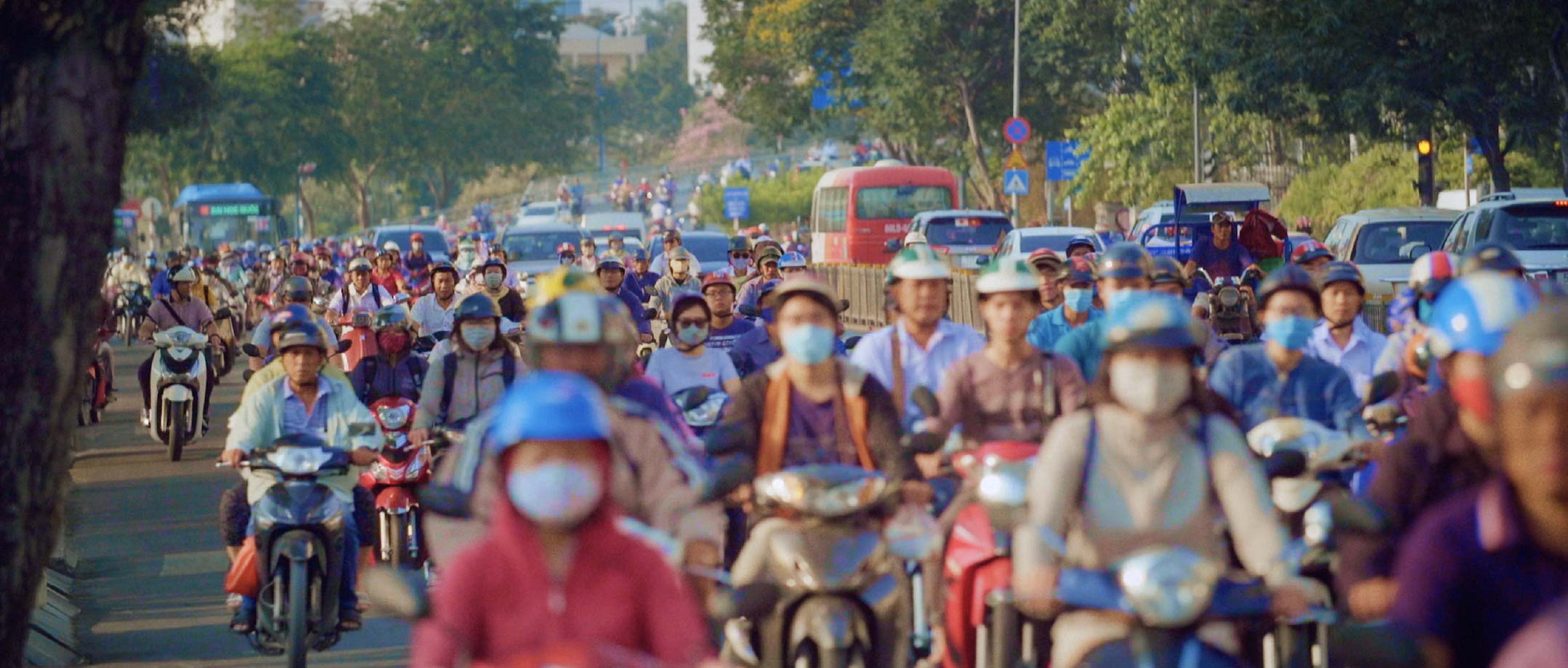


Vietnam has few refrigeration and freezer warehouses, and there have been delays in establishing temperature-controlled logistics systems. In order to preserve the quality of food products, it is important to maintain fixed temperature conditions. Chocolate is one example of a food product easily impacted by temperature changes. While some of the same Japanese chocolate products are also sold in Vietnam, the ingredients are adjusted to make the chocolate less prone to melting as Vietnam is hot and humid throughout the year. Japanese chocolate sold in Vietnam therefore has a different taste than the original Japanese product.
Vietnamese consumers can now enjoy the same taste of chocolate sold in Japan thanks to temperature-controlled logistics that keep the chocolate from melting. Expanding chocolate offerings to include delicious Japanese chocolates is just one way in which Sojitz is helping to diversify Vietnam’s food culture.
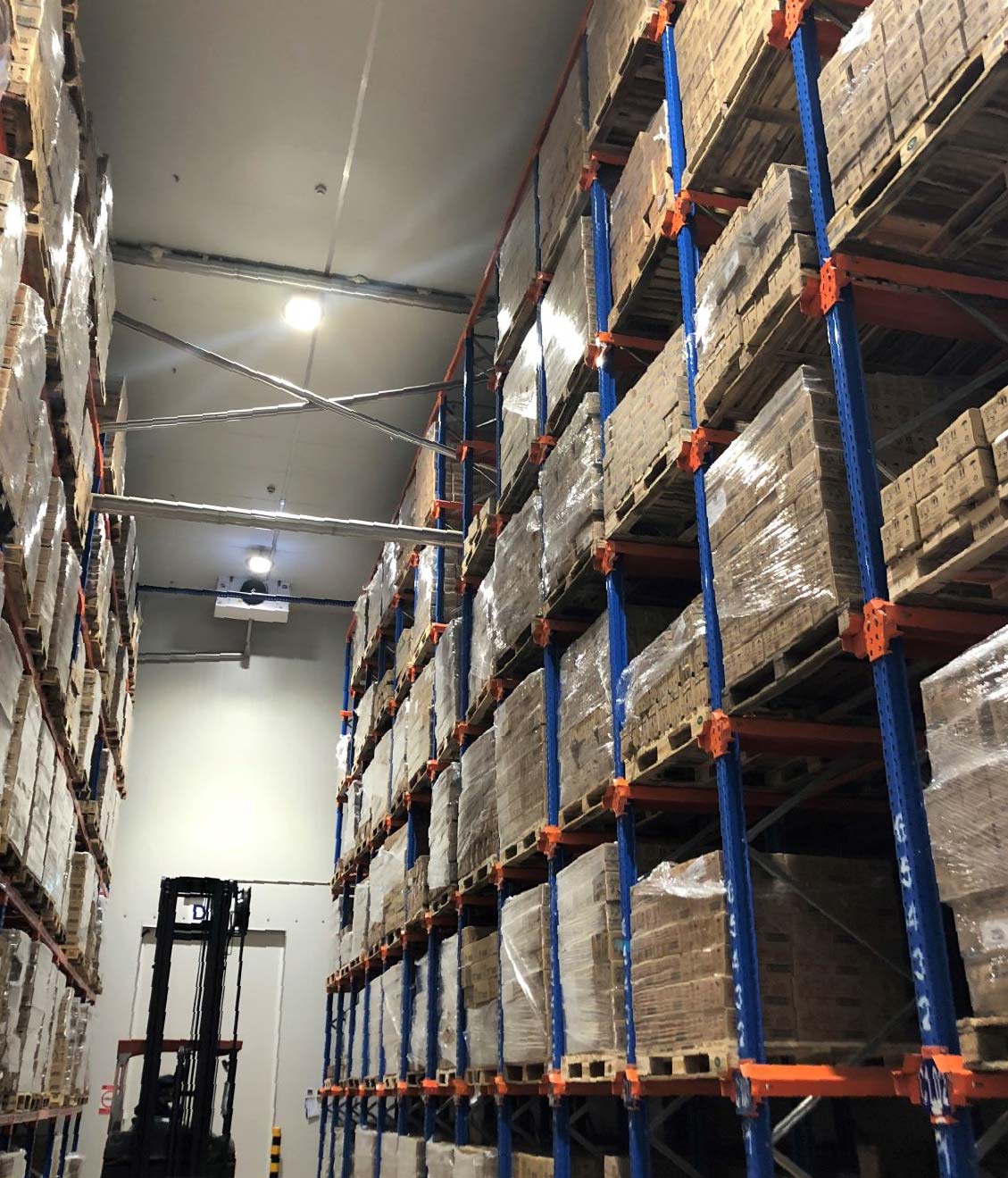
Do you want to know the secret behind delivering delicious chocolate in Vietnam? The answer: four-temperature cold chain logistics. The four temperatures include: fixed temperature (10℃-20℃), room temperature (dry), refrigerated (chilled), and frozen. Cold chain logistics allow specific temperatures to be maintained during transport and storage. Food distribution in Vietnam often used old-fashioned cooling methods such as packing food products in Styrofoam containers with ice packs. In 2016, Sojitz opened a four-temperature cold chain logistics center together with a Vietnamese logistics company and other partners. Trucks for each temperature type exist, making it possible to maintain consistent temperatures from storage to store delivery.
Not only is it important to maintain fixed temperatures at food warehouses, but also to educate truck drivers who will deliver products from warehouses to convenience stores and supermarkets. The driver must load products from the warehouse sorted by route and then deliver these goods to multiple stores. In order to make reliable deliveries, truck drivers must be sure to confirm the truck’s container has not been left open and to check the truck’s temperature meter. Educating drivers directly improves the level of logistics. It is essential that logistics be up to speed and correctly operated, particularly for convenience stores like Ministop with a wide array of products.
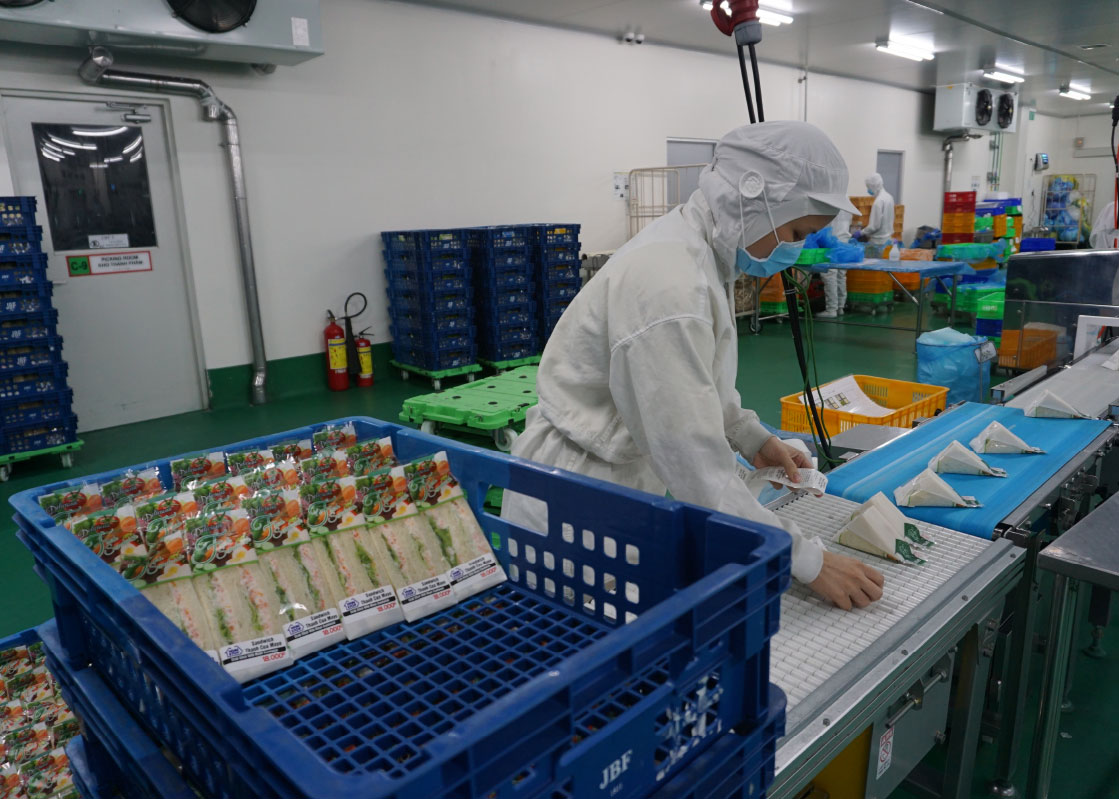
Through its management of Ministop convenience stores, Sojitz is introducing Vietnam to a new culture of food. Did you know that Sojitz is not only involved in store operations and expansion, but also operates plants that manufacture prepared foods?
Manufacturing plants produce onigiri, sandwiches, and bento box lunches for supermarkets and convenience stores in Vietnam, including Ministop. It is difficult for convenience stores to differentiate themselves from their competitors by selling standard sweets and beverages. However, Ministop has distinguished itself through an original food and dessert menu that showcases the company’s originality. Ministop’s original menu calls for a manufacturing plant to develop these new products in the country. Furthermore, Sojitz and its partners are optimizing the production process through manufacturing and processing experience acquired in Japan; maintaining hygienic conditions in plants using specialized technology that prevents bacterial growth; preserving the freshness of vegetables with washing and heating processes; and utilizing specialized processes for packaging. Through these efforts, Sojitz aims to improve the level of food manufacturing and processing in Vietnam.
with a Vietnamese logistics company and other partners
Sojitz, major logistics provider New Land Co., Ltd., and major wholesaler Kokubu Group Corporation jointly established New Land Vietnam Japan Joint Stock Company
also operates plants that manufacture prepared foods
Sojitz and NittoBest Corporation together established Japan Best Foods Co., Ltd. to develop and manufacture daily and prepared foods.


In Vietnam, there are many independently owned mom-and-pop stores. While Sojitz is engaged in the food wholesale business via its major Vietnamese food wholesale subsidiary, you might be surprised to learn that over half of this wholesaler’s customers include more than 1 million mom-and-pop stores nationwide.
Sojitz aims to provide quality products not only to convenience stores and supermarkets, but also to independently owned businesses in different regions. With cold chain logistics, chocolate and candy can now be delivered to multiple regions throughout Vietnam. In addition to food products and seasonings, Sojitz now handles Japanese diapers, skincare, and makeup products, making it possible for Vietnamese residents in rural areas to obtain the same products available in cities.
Interestingly, the best-selling products in Vietnamese cities differ from those in rural areas. For example, when Sojitz’s subsidiary Huong Thuy first began sales of an instant noodle product, consumers in rural areas complained that the noodles did not soften after adding hot water.
Further investigation into the instant noodle issue revealed that Vietnamese farmers do not boil water multiple times a day, Instead, it is customary to boil a large tub of water to be used throughout the day. The researchers found that by lunchtime the water’s temperature had cooled to approximately 60°C. Huong Thuy took this customer feedback on instant noodles seriously by working with Japanese manufacturers to create noodles suitable for rural lifestyles that could be cooked at 60° to 70°C. In addition, while urban populations are increasingly choosing cup noodles, people in rural areas still overwhelmingly prefer packaged noodles. Ministop conducts product development and features products in its stores based on this type of customer feedback.
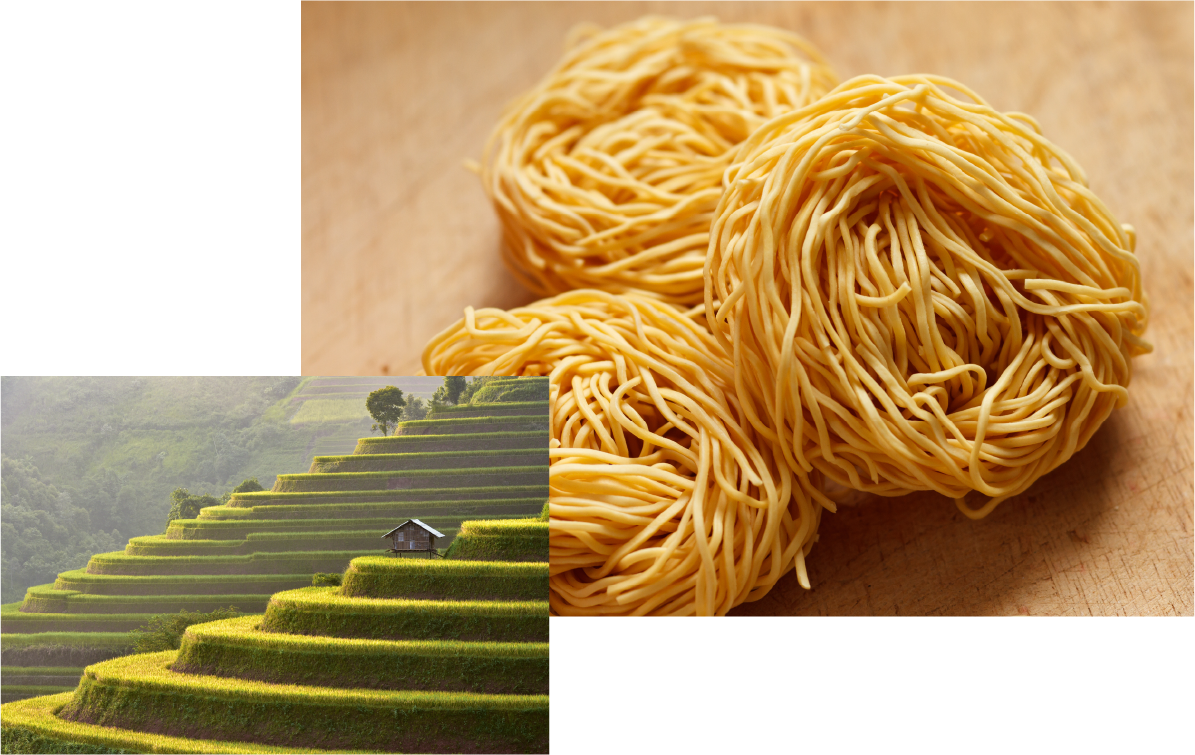
There are currently a number of large-scale projects underway in cities across Vietnam, which include: shopping center construction, rail infrastructure development, condominium development, and support for high-tech farming and improved crop quality. While projects differ based on the city, Japanese companies are often involved through provision of technology or investment. One project is to advance food retail businesses in Vietnam through efforts centered on Sojitz’s operation of Ministop convenience stores.
Cities evolve while maintaining deeply rooted traditions, and Vietnam’s cityscape will always remain vibrant. Look around and you will see people shopping at markets and food stalls or chatting together while eating pho and banh mi on roadside stools. A sea of motorcycles and cars fill the roads. Modernization and industrial development in cities always bring greater convenience to residents. Sojitz’s contributions to food retail business in Vietnam will continue to build Vietnam’s future.
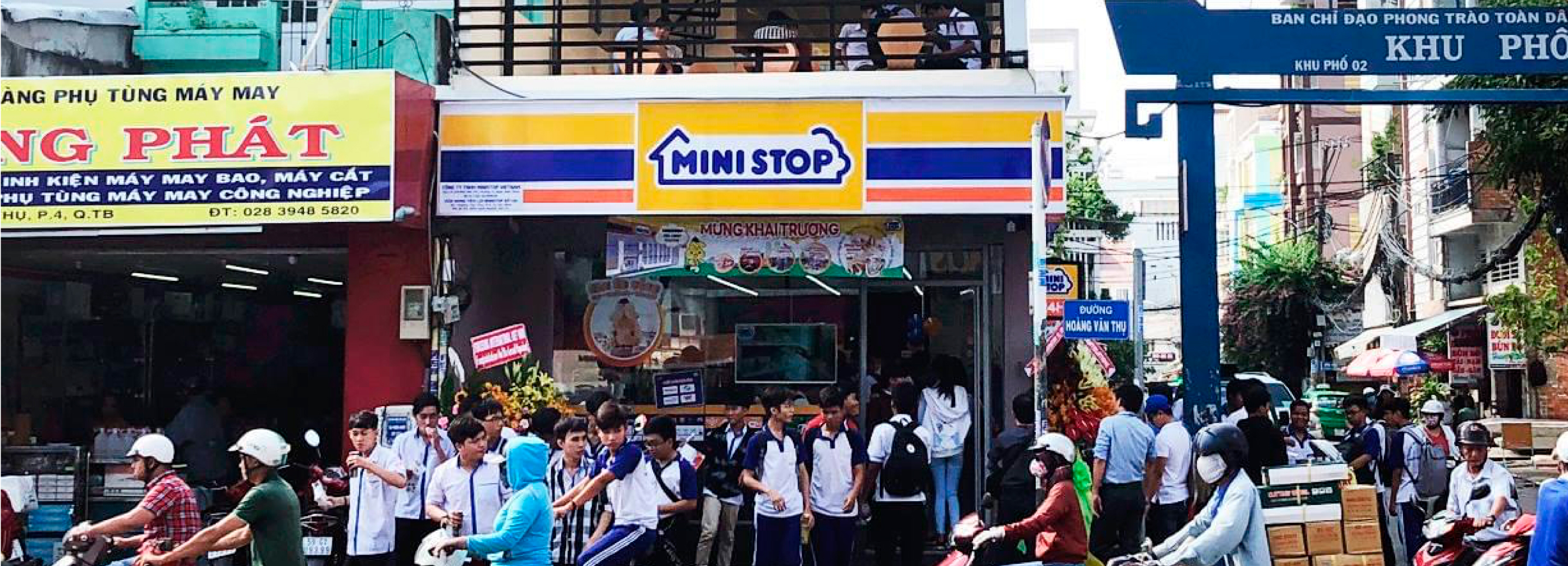
major Vietnamese food wholesale subsidiary
Sojitz, major Vietnamese logistics provider New Land Corporation, and major Japanese food wholesaler KOKUBU & Co., Ltd. jointly invested in Huong Thuy Manufacture Service Trading Corporation, one of Vietnam’s largest food wholesale companies.